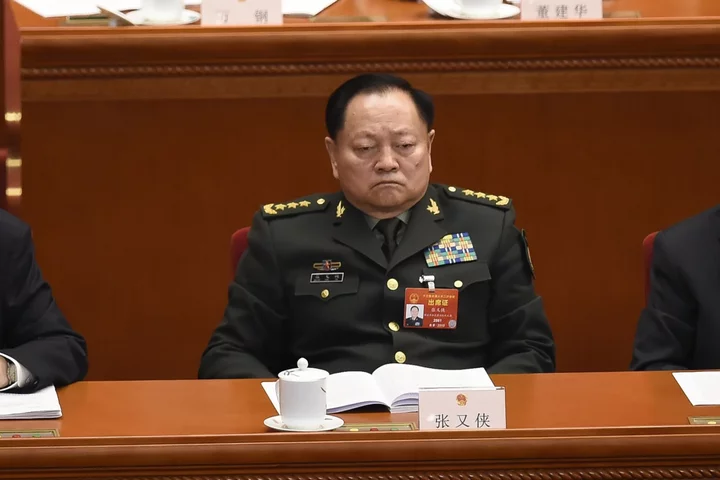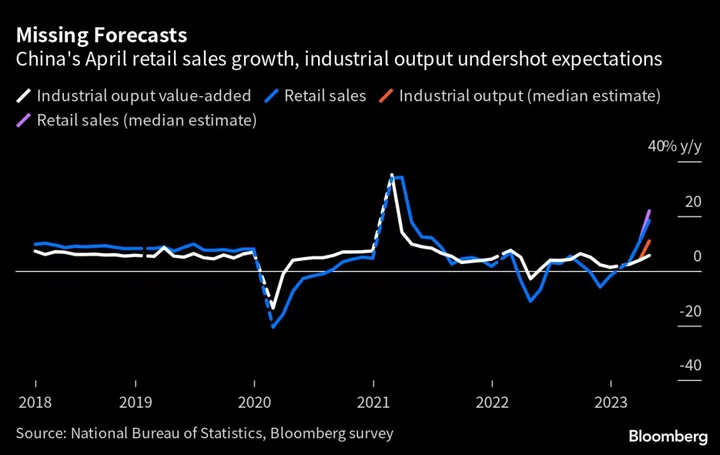A former executive at TikTok parent ByteDance Inc. who was fired in 2018 said in a lawsuit that the Chinese Communist Party had a special office within the company that gave it “supreme access” to all data, a backdoor channel that he said persisted even after US user data was walled off from individual engineers in China.
In a complaint filed Friday in California state court, Yintao “Roger” Yu said he was terminated from his job as head of engineering in the US in retaliation for his complaints to supervisors about “brazenly unlawful conduct” at the company.
ByteDance called the allegations “baseless” and said it will vigorously fight the suit.
“ByteDance is committed to respecting the intellectual property of other companies, and we acquire data in accordance with industry practices and our global policy,” a spokesperson said in a statement, which noted that Yu worked for the company for less than a year.
Yu alleges his bosses were dismissive when he voiced concern that ByteDance was stealing copyrighted content from other platforms including Instagram and Snapchat, as well as fabricating users to exaggerate its metrics and help China’s Communist Party spread propaganda to a larger audience.
How TikTok Became a US-China National Security Issue: QuickTake
He also said he was “struck by the misdirection” of TikTok Chief Executive Officer Shou Chew’s March testimony before Congress to allay national security concerns about the platform’s ties to China in light of his own on-the-job knowledge that the CCP maintained a “backdoor channel” to US user data.
It was known within the company that a special government-controlled committee had a significant role even though it did not work for ByteDance, Yu said.
“The Committee maintained supreme access to all the company data, even data stored in the United States,” according to the suit. “After receiving criticism about access from abroad, individual engineers in China were restricted from accessing U.S. user data, but the Committee continued to have access.”
Yu alleges the company was driven by a “culture of lawlessness” that focused on growth at all costs.
“He was surprised by the brazenly unlawful conduct within the company, which was euphemistically excused as ‘entrepreneurship,’” according to the complaint.
Soon after he joined the company in 2017, Yu learned that ByteDance had for years undertaken a “worldwide scheme (including in California) to steal and profit from the copyrighted works of others,” according to the complaint.
He also discovered that the company was programming fabricated users to “like” and “follow” real user accounts to boost the engagement metrics relied on by potential investors, according to the complaint.
TikTok has been under intense scrutiny from Congress and a federal national security review over concerns about potential influence from the Chinese government because ByteDance is based in China. Multiple bills have been introduced that would limit or ban the app in the US.
As recently as this month in a letter to Congress, the company said it “has never shared” any US user data with the Chinese government, and wouldn’t if requested to do so. TikTok says it is in the process of walling off its sensitive US operations into a separate entity with relevant data kept on Oracle Corp.’s domestic servers.
ByteDance relied on software to strip video from competitors’ websites to make its service appear more popular with users, according to the complaint. “These actions were taken without the permission of the content creators and represented an unlawful effort to gain an edge against entrenched online video hosting websites,” according to the complaint.
Concerned about ByteDance’s skirting of “legal and ethical lines,” and the potential liability for the theft, Yu says he repeatedly raised objections, including to a senior vice president of engineering who reported directly to ByteDance CEO Yiming Zhang. But the senior vice president dismissed his concerns and the infringement continued, according to the complaint.
ByteDance’s Next Stop for TikTok Is US Courts as CEO Falls Flat
Yu identified one supervisor who was in “a position to retaliate” against him as Kelly Zhang, who is now ByteDance China’s chief executive officer.
Yu is seeking an order from a San Francisco Superior Court judge directing ByteDance to stop scraping social media content that belongs to others.
The lawsuit also details Yu’s objection to the company’s treatment of an unidentified employee suffering from depression. He says he lodged a complaint with ByteDance’s head of human resources about an illegal plan to fire the employee.
Yu, a resident of California, was hired with stock options and a guaranteed payment of $600,000 for the intellectual property of his own company, Tank Exchange, with the condition that he stayed with ByteDance for two years, according to the complaint.
The ByteDance spokesperson said that during Yu’s “brief time at the company, he worked on an app called Flipagram, which was discontinued years ago for business reasons.”
ByteDance claims it notified Yu that his termination was due a reduction in headcount, but he argues he never received any notices. In November 2018, he was terminated without the stock option award which he says had vested. In 2019, he filed a discrimination complaint with California’s Department of Fair Employment and Housing, according to the suit.
The suit was reported earlier by the New York Times.
The case is Yu v. ByteDance Inc., CGC-23-606246, California Superior Court, San Francisco County.
--With assistance from Alex Barinka.









